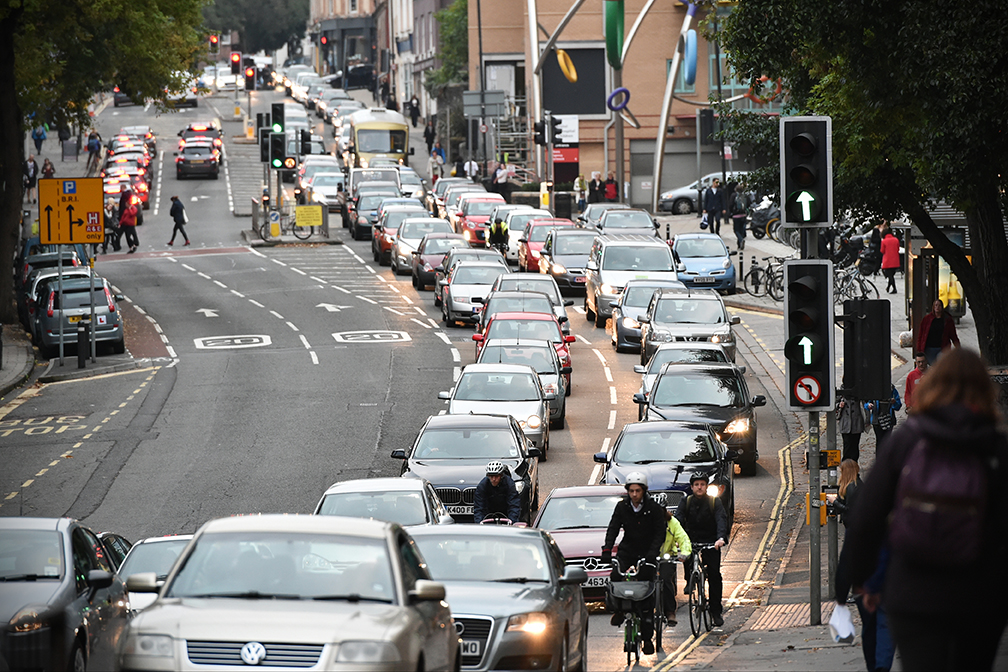Traffic is the bane of the professional driver’s life. Data shows that some drivers are spending nearly 40 minutes travelling a mere six miles. For those that spend the majority of their lives behind the wheel, that’s a hard stat to read.
Plan Insurance can provide bespoke taxi insurance quotes for all UK drivers. Just fill in our short online questionnaire, and our professional brokers will be in contact to arrange your insurance.
Where are the most congested cities in the UK?
Unsurprisingly for anyone, London tops the list. Drivers travel at an average of just 8 mph during rush hour.
Things are better up north, but not by much. Motorists in the North West experience the second and third worst congestion in the UK, with Manchester and Liverpool respectively having an average travel speed of 13 mph and 14 mph during peak times.
Edinburgh, Cardiff and Bournemouth are next up, taking on average 21.3 minutes to drive six miles. Drivers in Cardiff and Bournemouth have an average speed of less than 20 mph during rush hour.
Commuters in these cities are spending an alarming amount of time in their car, but professional drivers certainly get the worst of it. Despite the increased fares from waiting times, I think most drivers would rather take more jobs and passengers than have to sit in traffic all day.
What can be done?
This data of the UK’s most congested cities compiled by car rental experts at StressFreeCarRental.com doesn’t make for easy reading. It is clear that there is a massive need for investment in transport infrastructure across the UK. What this specifically looks like remains to be seen. As we enter into the age of electric vehicles with revenue from road tax falling , the government needs to think creatively about how to fund plans aimed at reducing congestion across both roads and public transport systems.
The current level of traffic on our roads is unsustainable. The congestion in our cities is having a major impact on air quality and, as we all know, is incredibly frustrating for motorists.
Some have argued that introducing a congestion charge (into the cities that don’t have them) would be effective. The natural response from Londoners is that the congestion charge in London has made London simply more expensive, not less congested.
If the UK is going to meet our targets on pollution and emissions, the only way to do this is by investing in infrastructure and encouraging people to use public transport. More reliable, affordable public transport would attract travellers and in turn reduce congestion on roads.
The future of travel around the UK
Bob Pishue, transportation analyst has said: “It is great to see civic and commercial life returning to normal, but unfortunately, we’re seeing congestion inching closer to, if not exceeding, pre-pandemic levels. We must manage congestion while improving mobility and accessibility in cities to avoid it hurting economic recovery and impacting the quality of life of commuters and residents”.
It’s a well-made point by Pishue. The emphasis for many is on the economy, but transport can have a huge effect on how enjoyable it is to live and work in a city. It is crucial that Rishi Sunak’s Government makes transport investment a priority.
Find out why 96% of our customers have rated us 4 stars or higher by reading our reviews on Feefo.


